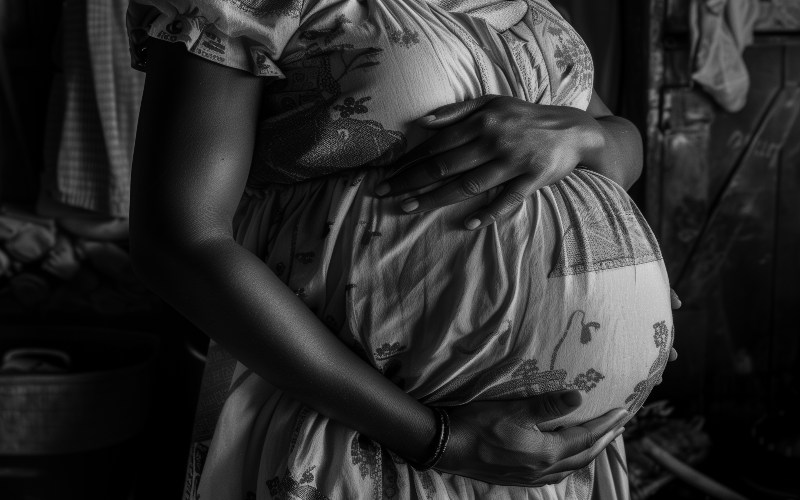Amnesty International urges state to compensate slums flood victims after court verdict

Amnesty International Kenya Section Director Irũngũ Houghton said the court decision should serve as a lesson to the government on adhering to respecting the rule of law in conducting evictions.
Human rights organisation Amnesty International Kenya on Thursday said President William Ruto's administration has no alternative but to respect a court decision ordering it to compensate scores of slum dwellers in Nairobi whose homes were demolished early this year following heavy flooding.
Amnesty International Kenya Section Director Irũngũ Houghton said the court decision should serve as a lesson to the government on adhering to respecting the rule of law in conducting evictions.
More To Read
- High court stops eviction of over 1,000 Ngara Railway estate residents
- “It’s like killing culture” Human Rights impacts of relocating Tanzania’s Maasai
- Kenya’s flood evictions may violate the law
- Kenya floods: Amnesty criticises state for poor response to crisis
- Court-ordered evictions put us in dilemma, police officers tell IPOA
"The October court ruling compelling the Government to compensate Mathare, Gwa Kairu, Mukuru kwa Reuben and Kiamaiko residents for failing to issue a proper eviction notice, demolishing and evicting them during April 2024 flash floods is a victory for communities who lost everything," said Irũngũ
He went ahead to demand that affected persons must be compensated after a determination by the Kenya National Commission of Human Rights (KNCHR) on who to be compensated and how much should each victim receive.
"Let this precedence also inform future interventions that seek to relocate communities away from danger," added Irũngũ.
The High Court had declared the forced eviction and demolition of houses in several Nairobi slums earlier this year illegal and unconstitutional.
The affected areas, including Mathare, Gwa Kairu, Mukuru Kwa Reuben, and Kiamaiko slums, were targeted by a government directive to remove residents due to the threat of flooding.
In a judgment delivered by Justice Ann Mogeni, the court ordered that the residents displaced by the evictions be compensated by the government for the losses they suffered.
The judge affirmed that the government's actions violated the constitutional rights of the residents.
"The failure to issue a proper notice of eviction to the petitioners, without adequate and reasonable time, violated their rights as guaranteed by Articles 47 and 35 of the Constitution and is illegal and unprocedural," Justice Mogeni ruled.
"Dignity and respect"
While directing the State to compensate the victims, the judge noted that the government cannot treat its citizens like "garbage."
"In this case, the government was well aware that its citizens had settled in these areas. Instead of relocating them to safer ground humanely, it chose to treat them like 'garbage' and literally mow them out of their homes in the most inhumane manner," Judge Mogeni indicated.
"The government must understand that it owes a duty to the citizens of Kenya to treat them with dignity and respect.
''Despite not having a formal eviction law, Kenya has signed onto international conventions that govern how evictions should be carried out."
Earlier this year, the government issued an emergency directive forcing residents to vacate their homes, claiming that they had illegally occupied riparian land.
The evictions, which took place in April and May, occurred amid one of Kenya's most severe rainy seasons. The resulting floods killed more than 200 people and displaced more than 200,000 individuals, causing widespread destruction of infrastructure and livelihoods.
On April 30, 2024, the State ordered residents of flood-prone and riparian areas in Nairobi, including the affected slums, to vacate their homes within 48 hours.
However, according to the petitioners, supported by the legal aid group, Sheria Mtaani, the government failed to provide alternative shelter for the displaced families, leaving them homeless and vulnerable to the harsh weather conditions.
The petitioners argued that the evictions were carried out without regard for their dignity, safety, or security.
They further contended that the forced evictions led to irreparable losses, including the destruction of personal property, and tragically, the deaths of two residents.
A nine-year-old child was killed when a hole collapsed during the evictions in Mukuru Kwa Ruben, and a 17-year-old student was run over by a bulldozer during the demolitions.
The petitioners also highlighted the discriminatory nature of the evictions, alleging that they disproportionately affected low-income areas.
They pointed out that more affluent areas such as Karen, Gigiri, Syokimau, and Runda, which were also impacted by the floods, were not subjected to similar eviction orders.
The court noted that the forced evictions occurred without adequate notice or consultation, violating the constitutional rights of the residents, including their right to dignity (Article 28), freedom and security of the person (Article 29), privacy (Article 31), and property (Article 40).
The court also recognised that some of the affected residents had lived in these areas for extended periods, and therefore, a 24-hour eviction notice was both unreasonable and inadequate.
Top Stories Today










































